We split on Hoi An after three fun, interesting days. All the passive negativity of my last post has not taken away from our impression it is a nice town! its just us learning how to operate in a culture different than ours - not better or worse. But it's still cold out, and we are running out of time, so we are headed south yet again to get some more sun. it would be a shame to get back to Canada without a tan, and to not be able to spend Christmas on a beach or swimming in the ocean! to get south, we first need to head north up to Danang to get a connection to Nha Trang.
Danang is at the north end of (currently very stormy) China Beach, 30km from Hoi An. This is a regional capital for the north-central part of Vietnam, and a moderately large port town. From first impressions, it is so exciting and growing so fast that no-one notices it is falling apart.
The ride up from Hoi An took us along a ~30km stretch of coast highway that paralleled China beach the entire way. A relatively recent 4-lane boulevard, at places bereft of traffic, connected seemingly unconnected resort developments and golf courses. These are indications that things are changing in Vietnam, and there are visions for keeping that change flowing.
As the highway is located about a kilometre from the actual beachfront, there is a 30-square-kilometre strip of sand that was seaside for the resorts of the future. There are already a couple of golf courses that look very nice (what the hell do I know? They are green and there are people in carts wearing pastels - that's very nice, isn't it?), and a handful of very posh looking gated resort complexes that would not be out of place in Cabo or Kona.
Then, between these, kilometres of vast empty sandy space. Creepier are the resorts that are not yet, or may not be, as someone spent some money building a concrete and brick wall around a square kilometre of sand, started building some structures, then apparently walked away, as the wall and structures are crumbling. One wonders if the pace of speculation outstripped demand, or if there is a political aspect to what is going on here that we have no idea about.
Pulling into Danang, the first thing you notice is the bridges and stadia and glossy new high-rises. This is an electric city, with LEDs instead of neon. There is a kilometers-long waterfront walkway that connects the 5 bridges across the Han River, and where new waterfront hotels and street front pubs and cafes buzz with life. The bright advertising billboards on the other side of the river compete with three brightly-lit bridges.
There are two rather dull bridges: the northernmost an older steel suspension span, and the southernmost a wide, squat concrete causeway of no note. However in the 5km between, the light show is on. One is a newer cable-stayed bridge with a unique canted single tower is lit up from lights around the base, often contrasting the spire an the cables. A second is a cable-stayed swing bridge (!) that has been bedazzled with LEDs and puts on a multi-color show all night.
In the centre is a through-arch bridge where the arches have been formed into a dragon motif, complete with fire-breathing at 9:00 every night.
The funny part about Danang, however, is the juxtaposition of gleaming new high-rises that make it look like the Shanghai of Vietnam as other buildings seem to be falling apart. This is not too unusual, I guess, except that there are signs some of the landmark buildings have been "under construction" for a very long time, and at the same time some of the hotels that are rated as new highlights in a three-year-old guidebook are prematurely falling apart on the outside, and moldy on the inside.
It reinforces an impression we have had in various places in Vietnam, but no more than along China Beach: there is ample money for speculative development - for big dreams about the future - but no money for day-to-day maintenance and operation. It is almost like the growth is so fast, so exciting, that there is little interest in what is already here. Or maybe land is still so cheap that real estate can be effectively abandoned. Why fix what's broken when it's easier to just move on?
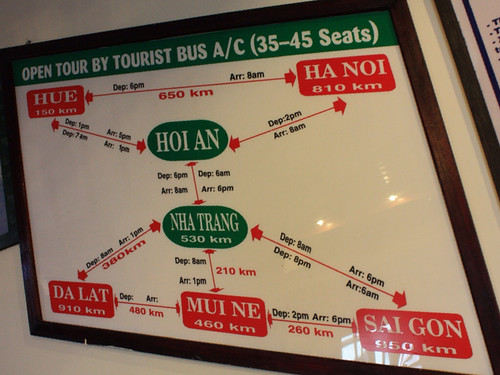
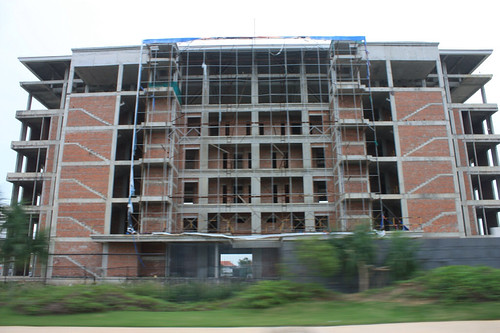
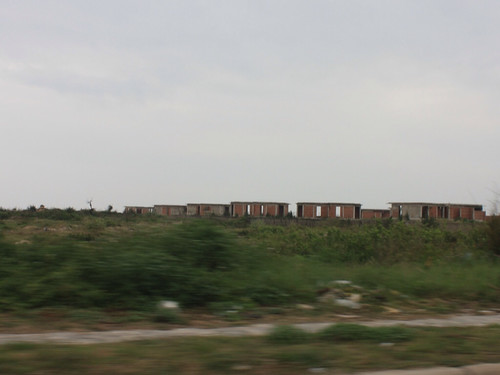
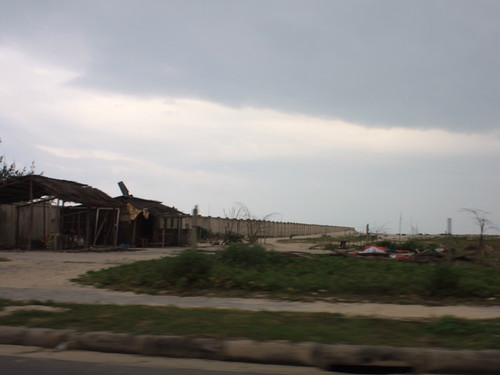
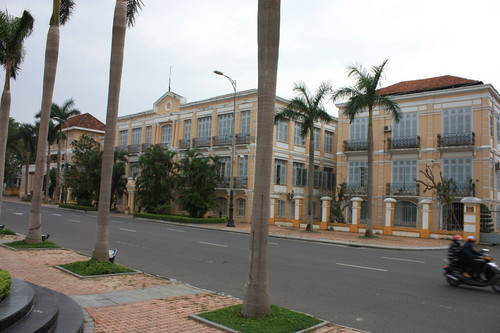
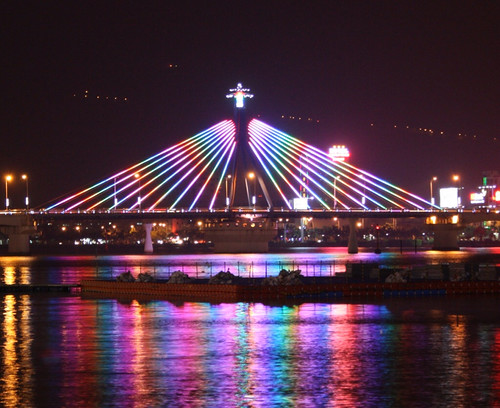

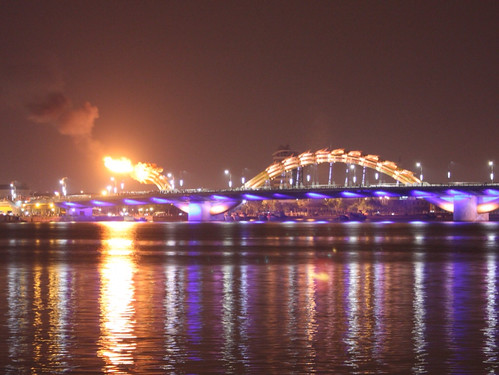
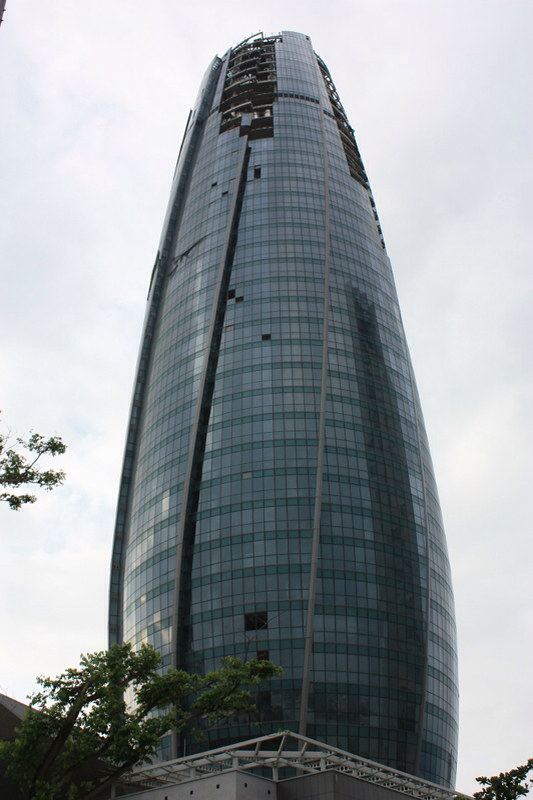
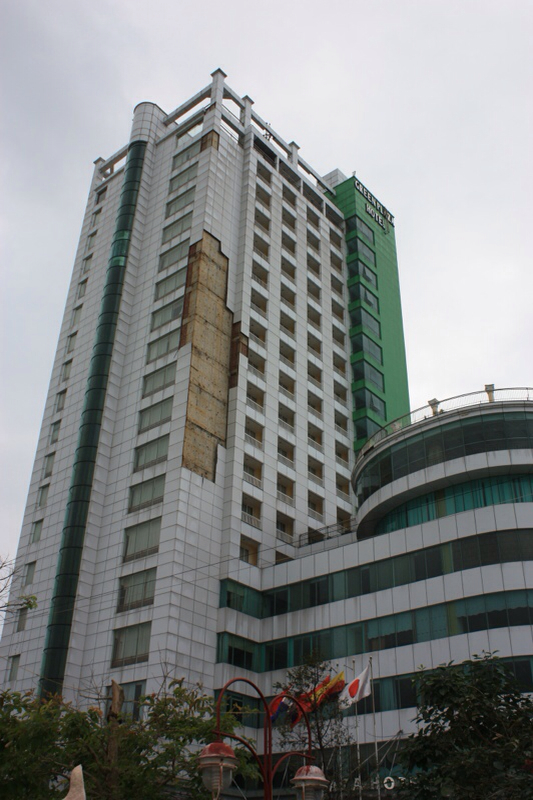
No comments:
Post a Comment